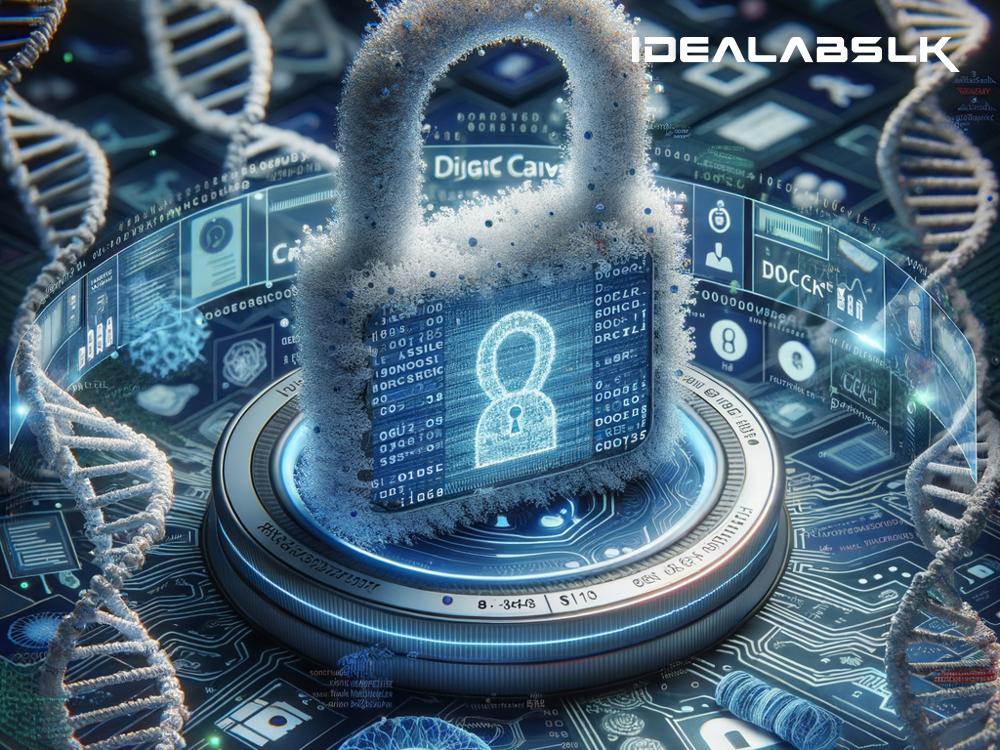In today's fast-moving world, the protection of health data has become more important than ever. Just like we keep our homes safe with locks and security systems, our health information also needs strong protection. This is where blockchain technology comes into play, ushering in a new era for patient privacy. But before diving into how blockchain is changing the game, let's break down some basics.
What is Blockchain?
Picture a digital ledger, similar to a notebook, where you record all transactions. However, unlike a notebook that can be tampered with, this ledger is tamper-proof and shared across a network of computers. Each entry in the ledger is stored in a 'block', and each block is connected to the one before and after it, creating a 'chain'. This is why it's called a blockchain. It's like a diary that automatically copies itself onto thousands of computers and anyone trying to tamper with it would have to change every single copy at the same time, which is practically impossible.
Why is Health Data so Important?
Health data includes everything from our doctor visits, prescription records, to our workout routines logged in fitness apps. This information is incredibly sensitive. If it falls into the wrong hands, it can lead to privacy breaches, identity theft, and even discrimination. Hence, securing health data is not just about privacy; it's about protecting our rights and dignity.
The Current State of Health Data Security
Traditionally, health data has been stored in centralized systems, making it a prime target for hackers. Once they break into one system, they can access a goldmine of information. Furthermore, these centralized systems often have inadequate security measures due to budget constraints or outdated technology, making breaches more likely.
How Blockchain is Changing the Game
Blockchain technology is revolutionizing how we think about data security, and it's particularly promising for health data. Here's how:
1. Decentralization
Since blockchain distributes its data across a network, there isn't a single point of failure. This means if a hacker wanted to access the data, they would need to breach not one, but millions of points, which is much harder.
2. Encryption
Blockchain uses advanced encryption to secure data. Each piece of information is locked away and can only be accessed by those who have the key. This key is often a complex combination that's hard to crack, making your health data safer.
3. Transparency and Control
One of the most significant advantages of blockchain is the control it gives back to patients over their own data. Patients can see exactly who is accessing their information and for what purpose. If they're not comfortable sharing certain details, they can restrict access, offering a new level of privacy and trust.
4. Immutable Records
Once something is recorded on a blockchain, it cannot be changed or deleted. This immutability ensures that the health data is accurate and tamper-proof, eliminating the risk of false information and fraud.
Real-World Applications
Several projects are already exploring how blockchain can secure health data. For instance, blockchain can enable the creation of secure digital health passports, containing an individual's medical history, which can be instantly accessed during emergencies. Hospitals and clinics are also experimenting with blockchain to securely share patient data among healthcare providers, ensuring that a patient’s healthcare team is always on the same page.
Challenges and Concerns
While blockchain offers numerous benefits, it’s not a silver bullet. Issues like the massive energy consumption of blockchain networks, the scalable storage of huge amounts of health data, and ensuring that the technology remains accessible to all, are significant challenges that need to be addressed.
A Bright Future Ahead
As we continue to push the boundaries of what’s possible with technology, blockchain presents a promising solution to the perennial problem of data security. By making health data secure, transparent, and patient-centric, blockchain is not just revolutionizing patient privacy; it’s paving the way for a future where our rights and dignity are at the forefront of healthcare innovation.
In sum, the integration of blockchain technology in managing health data is still in its infancy, but its potential to reshape patient privacy and data security is undeniable. As we move forward, it’s crucial to balance innovation with ethical considerations, ensuring that as we protect our health data, we also protect the values that make us human. This is not just a new chapter in healthcare technology; it’s a step towards a future where technology serves humanity, grounding its incredible potential in the principles of trust, privacy, and security.

